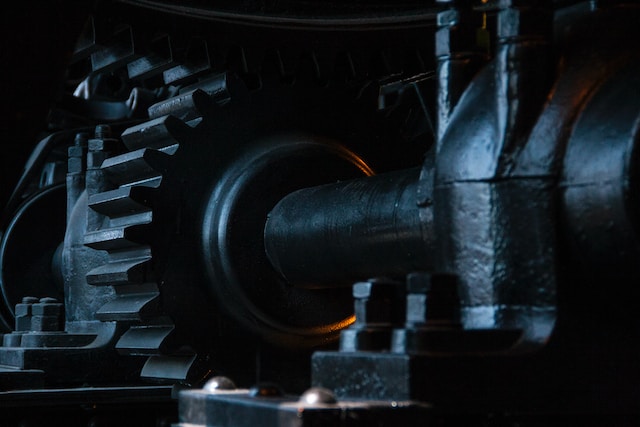Industrial lubricants help keep equipment functioning properly throughout the year, reduce downtime, and avoid expensive repairs. This helps reduce operational costs and increases profit potential.
They prevent heat damage and reduce the friction that can lead to metal parts wearing down or breaking. They also reduce the amount of energy required to move heavy loads.
Reduces Friction
Industrial lubricants keep moving parts well-oiled, preventing metal-on-metal contact and minimizing wear. They also dissipate heat created during operation, allowing temperatures to be controlled and assuring peak performance.
Even though metal surfaces may appear smooth and polished, they contain tiny peaks called asperities that scrape against their opposites, creating friction and wear. Industrial lubricants prevent this by coating the surfaces with a thin film of grease or oil, which allows them to slide past each other smoothly.
Without lubrication, friction between machinery causes significant heat damage that results in costly downtime and equipment failure. Industrial lubricants disperse the heat produced by moving machinery and transfer it to a cooling system, reducing the risk of heat-related component damage and improving efficiency.
Reduces Wear
Without proper lubrication, machinery parts would grind together and create excessive heat. This can damage the machine components and cause a loss of productivity. Industrial lubricant Richmond VA, keeps the parts moving smoothly and reduces friction, extending their lifespan and improving efficiency.
Different industrial lubricants are available to suit various working conditions and applications. They can be found in liquid, solid, or grease forms. Solid lubricants are film-forming oils, waxes, or fluids that prevent other materials from sticking to a surface.
Industrial gear oils are designed to withstand extreme operating rates, temperatures, and environments. They can contain foam inhibitors, pour point depressants, and extreme pressure additives. They can also be formulated with antioxidants to extend their life and improve oxidative resistance.
Reduces Corrosion
Industrial machinery must endure a wide range of working conditions. This can include extreme temperatures, high pressure, dust and dirt, and moisture. This equipment can be protected and have a reduced lifespan with proper care.
Lubricants safeguard equipment from corrosion by displacing water molecules and other corrosive substances from surfaces. They can also serve as conduits that suspend contaminants and carry them to a filter or other separator.
Advanced lubricants can mitigate corrosion by reducing friction and protecting equipment from rust and damage. They can also improve performance and extend equipment lifecycles by preventing equipment degradation and enabling predictive maintenance. These lubricants often contain anti-corrosion additives such as sulfonates, fatty amides, and hindered phenols.
Reduces Sludge
Lubricants prevent friction, wear, and heat generation between machine parts. When not correctly lubricated, machines generate significant amounts of heat, which could damage the equipment or the environment. Industrial lubricants keep machines running longer, more reliably, and efficiently to minimize operational interruptions and increase production potential.
Sludge, carbon, insoluble oxide, and varnish are by-products of oil degradation. They form when a lubricant is exposed to oxygen, water, and heat.
These contaminates cause equipment to wear faster and reduce performance. In addition, they can affect the environment by polluting soil, water, and air. Some sludge may be reclaimed from drainage sumps in bigger manufacturing operations and used again. This process eliminates waste disposal costs and minimizes the impact on the environment. It also reduces lubricant replacement costs.
Reduces Waste
Lubricants can be recycled on-site using various filtration systems to remove particulates and additives. Some lubricants can also be burned as fuel to generate electricity, but this is only possible where facilities have air scrubbers and can handle the toxic ash that results from the process.
Regardless of the method used to recycle or dispose of waste lubricants, care must be taken to ensure that different lubricants are not mixed. This will prevent incorrect lubrication and potential damage to equipment.
Biodegradable lubricants are made from renewable resources and reduce the environmental impact of traditional lubricants, which can pollute soil and water and contribute to air pollution. These lubricants can also be disposed of safely without causing harm to ecosystems. This helps to preserve biodiversity and a healthy planet.

